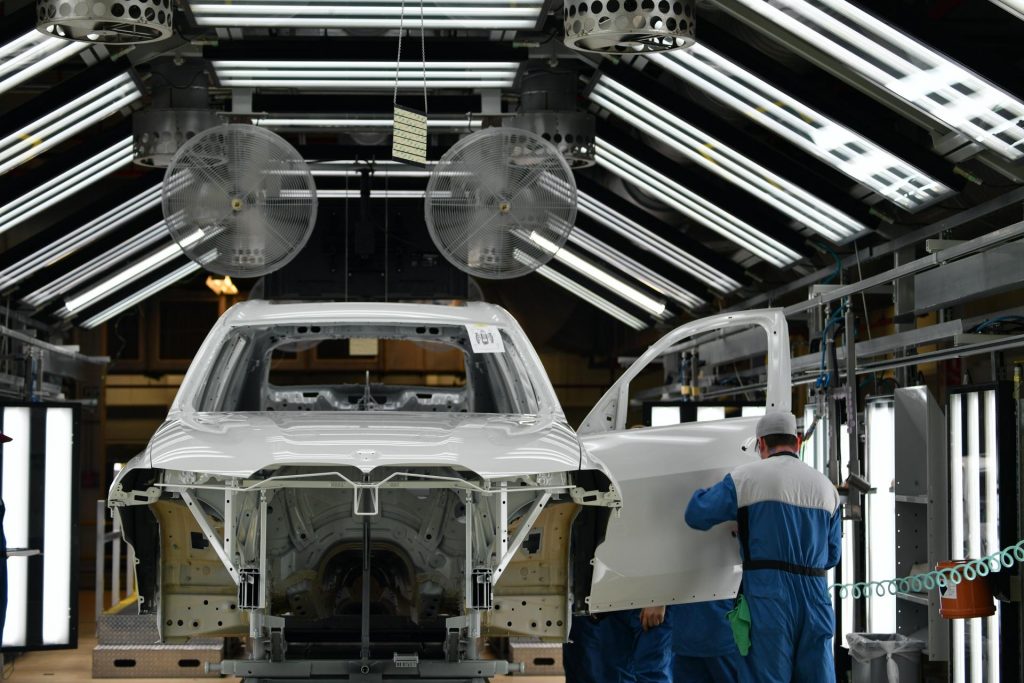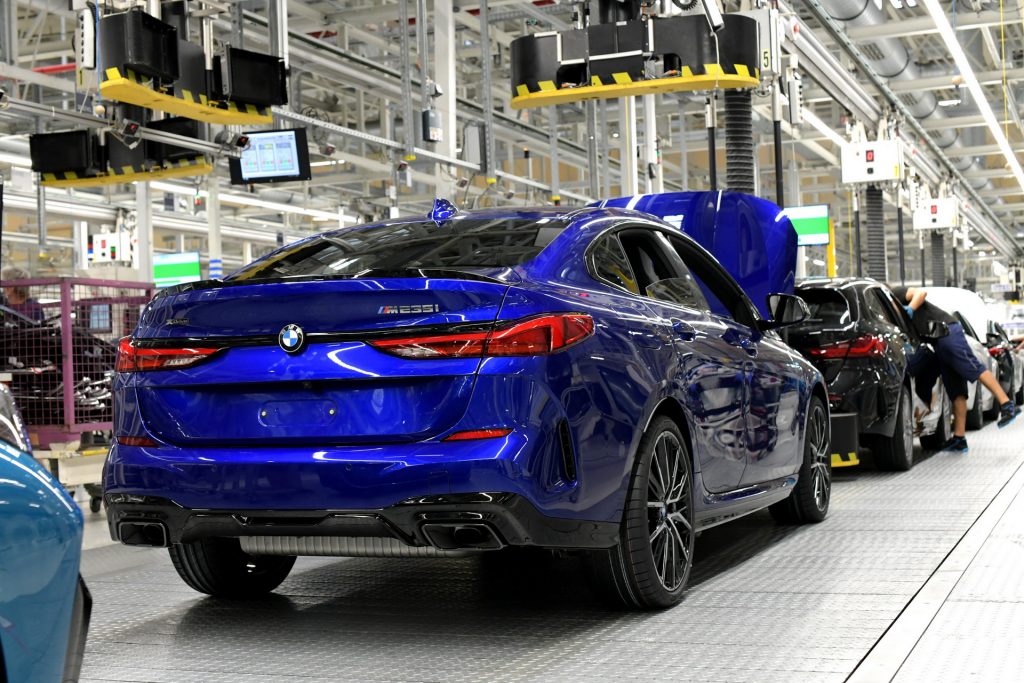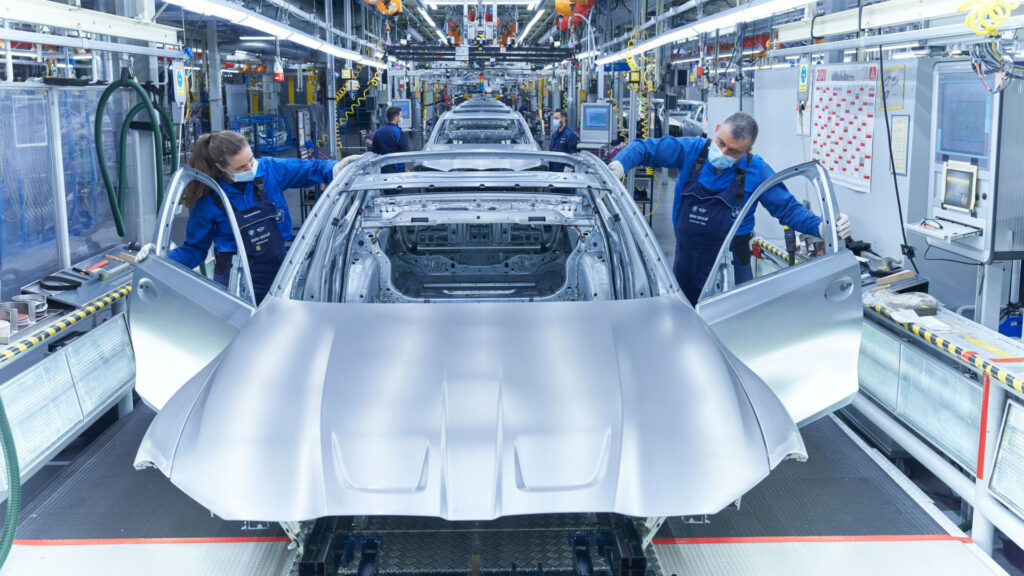BMW says it will cut the planning time needed for a new factory in half as it races to get ready for its switch to electric vehicles. The German car manufacturer has also turned to Nvidia to help it first plan factories in the virtual world before bringing them to life.
During an interview prior to the recent Munich Motor Show, BMW production boss Milan Nedeljkovic said that depending on the country, planning a new production site can take between 12 to 24 months while the construction usually takes a year or two. “If we can reduce [the planning portion of a project] from 24 to 12 [months], you’re talking of three years down to two,” he said.
Advanced software developed by Nvidia will play a pivotal role in making this possible. The technology giant’s Omniverse platform is allowing BMW to create a ‘digital twin’ of its plant in Hungary that will start building EVs in 2025. The software allows factory planners to test-fist tooling, improve human ergonomics, and integrate robots into the production process.
Watch: Mercedes-Benz To Use Nvidia Systems To Create Digital Twins Of Its Factories

Furthermore, Nvidia’s system has allowed BMW to map out the site’s plumbing and HVAC systems and can also be used to optimize assembly line workflow. The vice president of the Omniverse platform at Nvidia, Richard Kerris, added that it allows carmakers to test things in the virtual world before having to make the costly commitment to actually make changes and improvements in the physical world. It’s no surprise that Toyota and Mercedes-Benz are also using the software.
“Our planners worldwide are working in one virtual factory and optimizing the process,” Nedeljkovic said. “You see the problems… in the virtual world, you solve them, and off you go.”
Auto News understands that the use of digital twin factories can reduce the time needed to bring a factory to reality by 20 to 30%. It can also improve quality by 20% and increase resource efficiency by as much as 40%.




